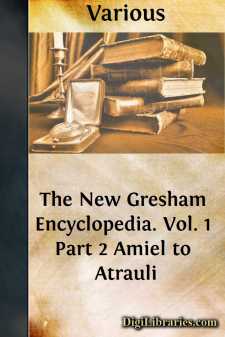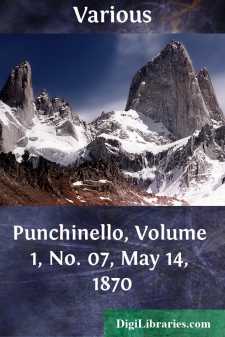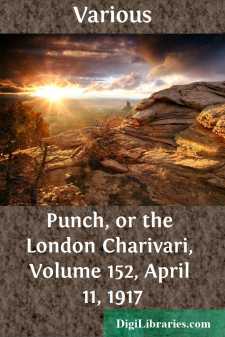Categories
- Antiques & Collectibles 13
- Architecture 36
- Art 48
- Bibles 22
- Biography & Autobiography 813
- Body, Mind & Spirit 142
- Business & Economics 28
- Children's Books 17
- Children's Fiction 14
- Computers 4
- Cooking 94
- Crafts & Hobbies 4
- Drama 346
- Education 46
- Family & Relationships 57
- Fiction 11829
- Games 19
- Gardening 17
- Health & Fitness 34
- History 1377
- House & Home 1
- Humor 147
- Juvenile Fiction 1873
- Juvenile Nonfiction 202
- Language Arts & Disciplines 88
- Law 16
- Literary Collections 686
- Literary Criticism 179
- Mathematics 13
- Medical 41
- Music 40
- Nature 179
- Non-Classifiable 1768
- Performing Arts 7
- Periodicals 1453
- Philosophy 64
- Photography 2
- Poetry 896
- Political Science 203
- Psychology 42
- Reference 154
- Religion 513
- Science 126
- Self-Help 84
- Social Science 81
- Sports & Recreation 34
- Study Aids 3
- Technology & Engineering 59
- Transportation 23
- Travel 463
- True Crime 29
Sort by:
by:
Various
THE LITTLE TEACHER. I know of a little girl, who, like Mozart, shows a great talent for music, though she is not yet ten years old. Before she could walk, it seemed to be her delight to creep along the floor to the piano, draw herself up so as to touch the key-board, and then strike the different keys. Some of the sounds were pleasing to her, and from some she would start and draw back, as if she were...
more...
by:
Various
MABEL'S COW. HE cow nearest to you in the picture is Mabel's cow; and Mabel Brittan is the taller of the two girls on the bridge. I will tell you why the cow is called Mabel's cow.Her family live in a wild but beautiful part of New Hampshire, where it is very cold in winter, and pretty warm in summer. There are only two small houses within a mile of her father's. He keeps cows, and...
more...
by:
Various
NOTES NOTES AND QUERIES The history of books and periodicals of a similar character ought to be the object of interest to the readers of this work. The number of works in which answers have been given to proposed questions is not small. Not to mention the Spectator and its imitators, nor the class of almanacs which give riddles and problems, nor mathematical periodicals of a more extensive...
more...
by:
Various
CONSONANTS Of the consonants, b, d, f, h, j, k, l, m, n, ng, p, sh, t, v, z, always have their common English sounds, when used to transliterate foreign words. The letter c is not used by itself in re-writing for pronunciation, s or k being used instead. The only consonantal symbols, therefore, that require explanation are the following:— ch is always as in rich. d, nearly as th in this = Sp. d...
more...
by:
Various
THE PLAYS AND SHOWS. BATHOS and pathos are closely allied in sound as well as in sense. Mr. FECHTER evidently regards them as completely identical; and in his acting, as in his pronunciation, uniformly prefers the former to the latter. He has recently exemplified this by his personation of CLAUDE MELNOTTE, in that most tawdry specimen of the cotton-velvet drama, the LADY OF LYONS. This melancholy event...
more...
by:
Various
BLANCHE'S LETTERS. SOCIETY "WAR-WORKERS." DEAREST DAPHNE,—The scarcity of paper isn't altogether an unmixed misfortune, as far as one's correspondence is concerned. Letters that don't matter, letters from the insignificant and the boresome, simply aren't answered. For small spur-of-the-moment notes to one's intimes who're not too far off, there's quite...
more...
by:
Various
ROBERT'S AMERICAN ACQUAINTANCE. My akwaintance among eminent selebraties seems to be rapidly encreasing. Within what Amlet calls a week, a little week, after my larst intervue with the emenent young Swell as amost lost his art to the pretty Bridesmade, I have been onored with the most cordial notice of a werry emenent Amerrycane, who cums to Lundon wunce ewery year, and makes a good long stay, and...
more...
by:
Various
RHODA. Uncle Bradburn took down a volume of the new Cyclopædia, and placed it on the stand beside him. He did not, however, open it immediately, but sat absorbed in thought. At length he spoke:—"Don't you think a young girl in the kitchen, to help Dorothy, would save a good many steps?" "I don't know," replied Aunt Janet, slowly. "Dorothy has a great deal to do already....
more...
by:
Various
LETTERS TO PEOPLE I DON'T KNOW. (No answers required, thank you.) To Count Brockdorff-Rantzau, Head of the German Peace Delegation. The enthralling volume, entitled Preliminary Terms of Peace, on which your attention is being engrossed at the present moment, is said to be of the same length as A Tale of Two Cities. In other respects there is little resemblance traceable between the two works. A...
more...
by:
Various
Interior of the Colosseum. References to the Engraving. A. Column or Tower in the centre of the building, for supporting the Ascending Room, &c. B. Entrance to the Ascending-Room. C. Saloon for the reception of works of art. D. Passage lending to the Saloon, Galleries, and Ascending-Room. E. F. Two separate Spiral Flights of Steps, leading to the Galleries, &c. G. H. I. Galleries from which the...
more...











